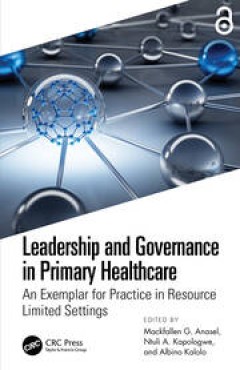Filter by

Spanish Economic Growth, 1850–2015
This book is open access under a CC BY 4.0 license. This text offers a comprehensive and nuanced view of the economic development of Spain since 1850. It provides a new set of historical GDP estimates for Spain from the demand and supply sides, and presents a reconstruction of production and expenditure series for the century prior to the introduction of modern national accounts. The author …
- Edition
- 1
- ISBN/ISSN
- 978-3-319-58042-5
- Collation
- -
- Series Title
- Palgrave Studies in Economic History
- Call Number
- XXIV, 383

The Early Years
This book is open access under a CC BY-NC-ND 3.0 IGO license. The Early Years analyzes the development of Latin American and Caribbean children and makes a compelling case for government intervention in what is instinctively a family affair. Spending on effective programs for young children is an investment that, if done well, will have very high returns, while failure to implement such pro…
- Edition
- 1
- ISBN/ISSN
- 978-1-137-53649-5
- Collation
- -
- Series Title
- -
- Call Number
- XXII, 262

Determinants of Financial Development
A PDF version of this book is available for free in open access via the OAPEN Library platform, www.oapen.org. This book examines the emergence of both financial markets and carbon markets, and provides an in-depth investigation on the fundamental determinants of financial development.
- Edition
- 1
- ISBN/ISSN
- 978-0-230-30249-5
- Collation
- -
- Series Title
- -
- Call Number
- XIX, 206

Networks in the Russian Market Economy
A PDF version of this book is available for free in open access via the OAPEN Library platform, www.oapen.org. This book examines the significance of networks among the firms operative in the contemporary Russian software industry in the St. Petersburg region.
- Edition
- 1
- ISBN/ISSN
- 978-0-230-29493-6
- Collation
- -
- Series Title
- -
- Call Number
- XI, 184

The Economics of the Audiovisual Industry: Financing TV, Film and Web
This book is open access under a CC BY licence. Recent reductions in public funding for audiovisual products have led to dramatic changes in the industry. The lack of interaction between the industry and capital markets has made sourcing funds for audiovisual products especially difficult. This book explains why the distance between the audiovisual and financial markets exists, and considers th…
- Edition
- 1
- ISBN/ISSN
- 978-1-137-37847-7
- Collation
- -
- Series Title
- -
- Call Number
- XII, 191

Roadblocks to the Socialist Modernization Path and Transition
This open access book examines how different economic systems impacted the development of East Germany and Poland. Through comparing these countries while they were centrally planned socialist economies with the periods when they transitioned to capitalism, the inability of socialist economies to modernize effectively and produce sustained economic growth is highlighted. Particular attention is…
- Edition
- 1
- ISBN/ISSN
- 978-3-031-37050-2
- Collation
- -
- Series Title
- Studies in Economic Transition
- Call Number
- XVI, 331

Corruption and Illegality in Asian Investment Arbitration
This open access book explores Asian approaches towards investment arbitration—a transnational procedure to resolve disputes between a foreign investor and a host state—setting it in the wider political economy and within domestic law contexts. It considers the extent to which significant states in Asia are, or could become, “rule makers” rather than “rule takers” regarding corrupti…
- Edition
- 1
- ISBN/ISSN
- 978-981-99-9303-1
- Collation
- -
- Series Title
- Asia in Transition
- Call Number
- XVIII, 454

Economics of Land Degradation and Improvement – A Global Assessment for Sus…
This volume deals with land degradation, which is occurring in almost all terrestrial biomes and agro-ecologies, in both low and high income countries and is stretching to about 30% of the total global land area. About three billion people reside in these degraded lands. However, the impact of land degradation is especially severe on livelihoods of the poor who heavily depend on natural resourc…
- Edition
- 1
- ISBN/ISSN
- 978-3-319-19168-3
- Collation
- -
- Series Title
- XVIII, 686
- Call Number
- 330

Leadership and Governance in Primary Healthcare : An Exemplar for Practice in…
ABSTRACT Good leadership and governance at all levels of the healthcare system is necessary for better performance of the system and health outcomes. Lack of good leadership and governance practices can lead to misuse of health system inputs such as human resources, health commodities and financial resources hence lowering the quality of services delivered. Thus, this guide was developed throu…
- Edition
- -
- ISBN/ISSN
- 9781003346821
- Collation
- -
- Series Title
- -
- Call Number
- 330

True Cost Accounting for Food : Balancing the Scale
This book explains how True Cost Accounting is an effective tool we can use to address the pervasive imbalance in our food system. Calls are coming from all quarters that the food system is broken and needs a radical transformation. A system that feeds many yet continues to create both extreme hunger and diet-related diseases, and one which has significant environmental impacts, is not serving …
- Edition
- -
- ISBN/ISSN
- 9781003050803
- Collation
- -
- Series Title
- -
- Call Number
- 650
 Computer Science, Information & General Works
Computer Science, Information & General Works  Philosophy & Psychology
Philosophy & Psychology  Religion
Religion  Social Sciences
Social Sciences  Language
Language  Pure Science
Pure Science  Applied Sciences
Applied Sciences  Art & Recreation
Art & Recreation  Literature
Literature  History & Geography
History & Geography